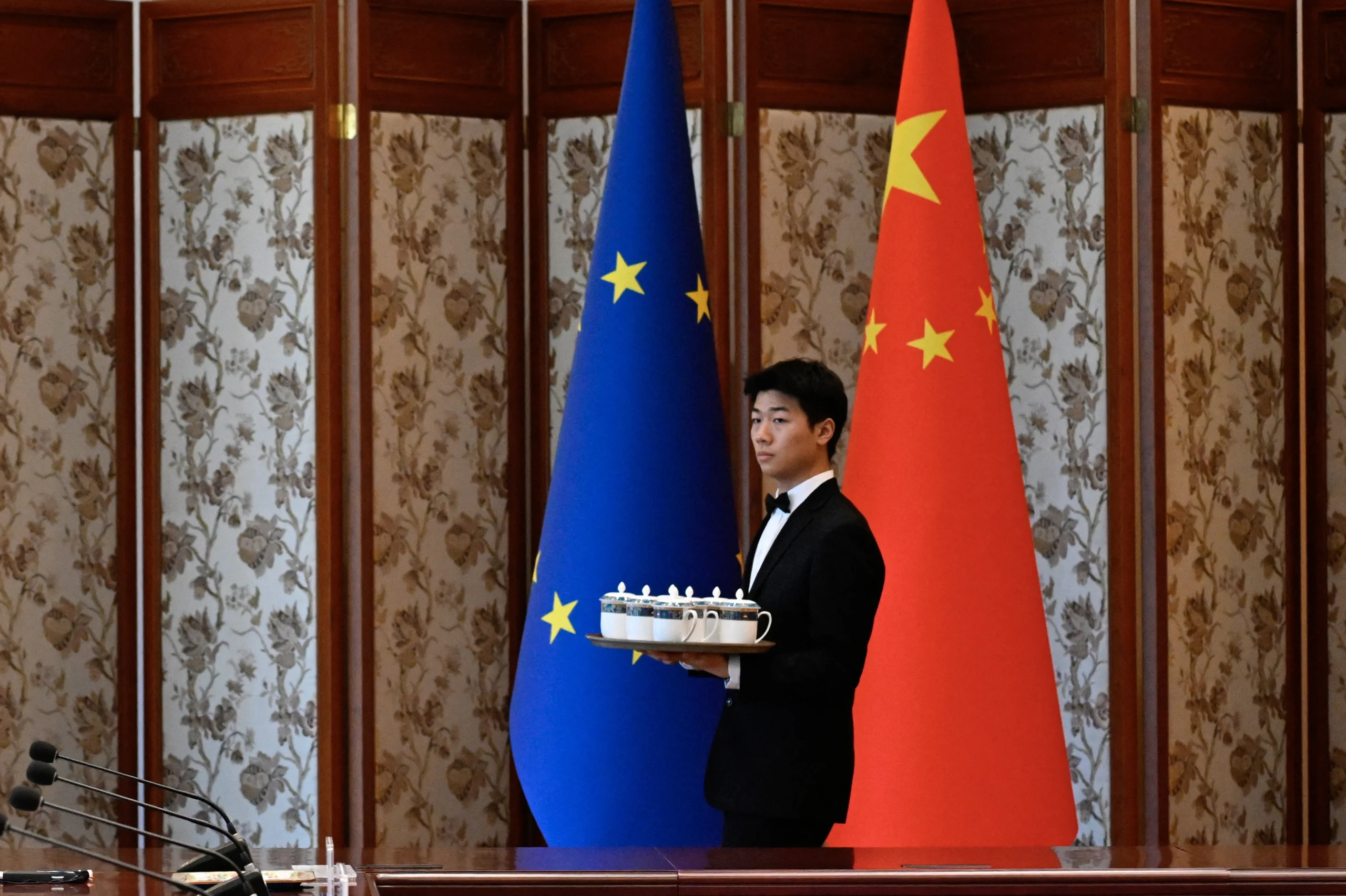A high-level summit between China and the European Union (EU) is set to take place in Beijing, with key issues such as trade disputes and the Russia-Ukraine war dominating the agenda. Although Chinese President Xi Jinping will meet with European Commission President Ursula von der Leyen and European Council President Antonio Costa, early hopes of strengthening ties have faded.
Initially, the summit was scheduled to take place in Brussels, but President Xi’s decision not to attend in person contributed to mounting tensions. Relations between China and the EU have worsened in recent months, dampening the optimism seen earlier this year, which had been driven in part by shifting global dynamics following political developments in the United States.
Ukraine War, Strategic Mistrust, and Diplomacy Challenges Define Troubled EU-China Summit Outlook
Despite attempts by both sides to present the summit as an opportunity for candid discussions and collaboration, expectations remain low. EU officials anticipate difficult conversations, while Beijing has emphasized a fresh start. Still, skepticism prevails in Brussels about whether any real progress will result, especially given growing strategic mistrust.
President Xi’s visible alignment with Moscow, including his appearance at Russia’s World War Two victory parade, has further soured diplomatic sentiment and raised concerns about China’s commitment to neutrality in the Russia-Ukraine conflict.
The war in Ukraine has become a major point of friction in EU-China relations. The EU’s recent sanctions on two Chinese banks for aiding Russia have provoked strong objections from Beijing. Additionally, reports suggesting that Chinese Foreign Minister Wang Yi expressed support for a Russian victory, contradicting China’s official neutral stance, have further alarmed European leaders.
Estonian Prime Minister Kaja Kallas went so far as to label China a “key enabler” of Russia’s war efforts, highlighting the deepening rift between the two powers over global security concerns.
Trade Disputes, Strategic Tensions, and Clashing Perceptions Undermine EU-China Diplomatic Engagement Efforts
Economic issues remain central to the strained relationship. After the EU introduced tariffs on Chinese electric vehicles, China retaliated with duties on European liquor and imposed restrictions on the purchase of EU medical devices.
Tensions rose further as Beijing tightened export controls on critical minerals and rare earths, a move the EU perceives as a strategic attempt to dominate global supply chains. European Commission President von der Leyen accused China of exploiting its “quasi-monopoly” in key markets to undercut competitors, exacerbating concerns over unfair trade practices.
The summit is taking place under the shadow of competing narratives and diverging worldviews. China criticizes the EU’s characterization of it as a “partner, competitor, and rival,” calling the approach contradictory and obstructive.
With a record €305.8 billion trade deficit in 2023 and rising concerns over industrial competition, the EU is pushing back against what it views as aggressive Chinese economic policy. Mutual suspicion and geopolitical friction suggest that the summit will do little to resolve deeper issues, even as both sides attempt to keep diplomatic channels open.

Leave a Reply